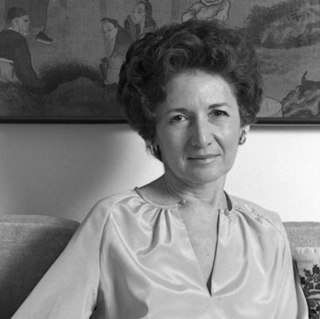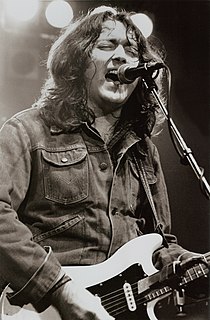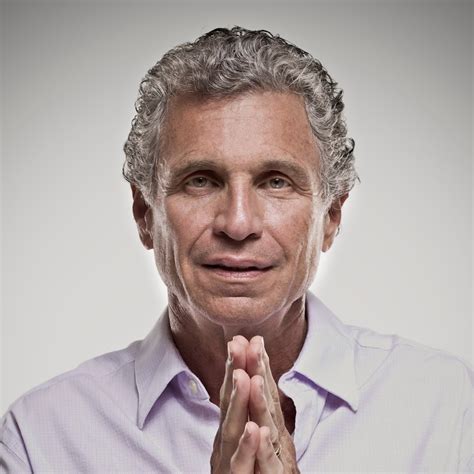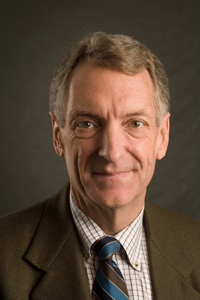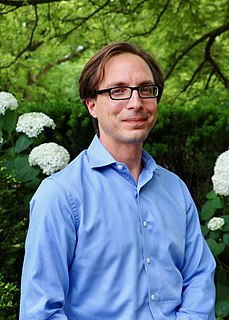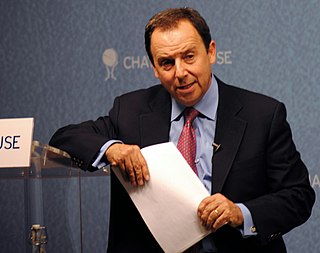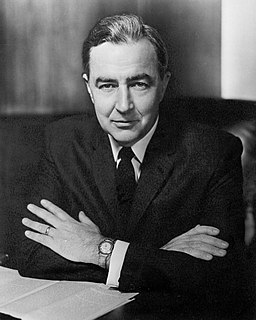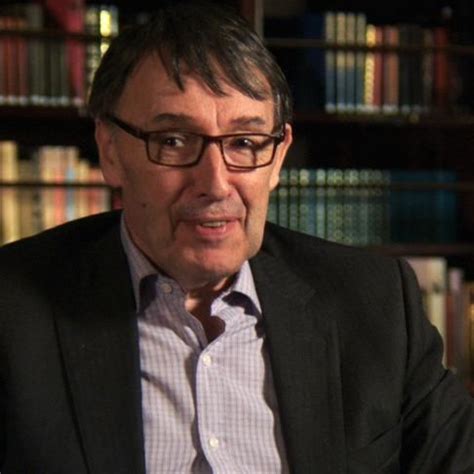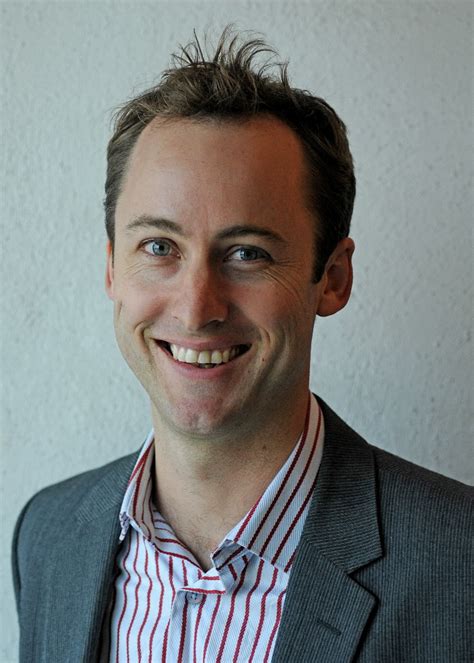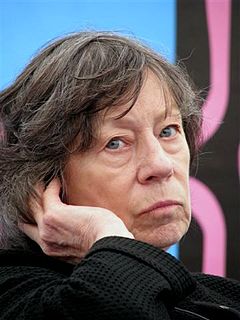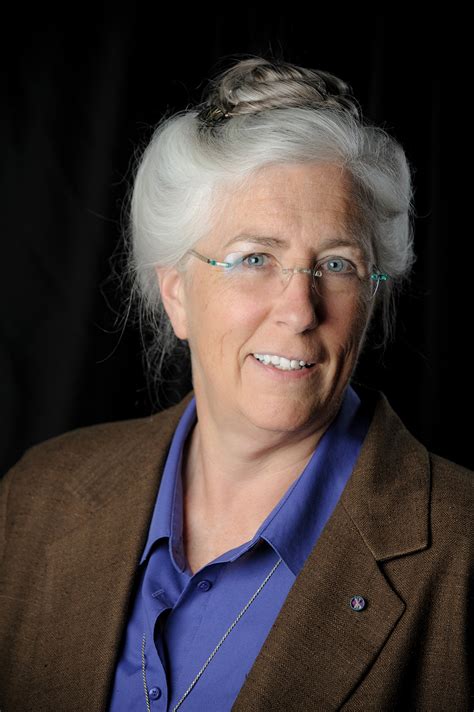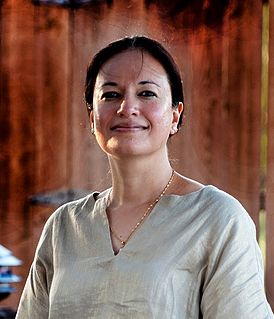Top 1157 Academic Quotes & Sayings - Page 18
Explore popular Academic quotes.
Last updated on November 26, 2024.
Our system rewards specific talents more than anything. I got pushed forward for having certain capacities. Others had their horizons systematically lowered for having capacities that our academic system had no use for. I've seen countless people lose heart and feel like they should settle for less, that they don't deserve abundance.
The Ph.D. system was designed for a job in academics. And it works really well if you really want to be an academic, and the system actually works quite well. So for people who have the gift and like to go spend their lives as scholars, it's fine. But the trouble is that it's become a kind of a meal ticket - you can't get a job if you don't have a Ph.D.
Free speech is what we all have and is guaranteed by the First Amendment of the US Constitution. Academic freedom refers to what happens in the university, particularly in the classroom, and to the importance of the teacher having the right to teach and share what he or she has learned, has proven her competence to teach, having gone through a series of tests and certifications including research and writing to demonstrate her abilities and knowledge.
In spiritual growth, it is important to avoid imbalances between academic or intellectual learning and practical implementation. Otherwise there is a danger that too much intellectualiza tion will kill the more contemplative practices and too much emphasis on practical implementation without study will kill the understanding. There has got to be a balance.
It's hard for me to say what would happen if I didn't go to art school. It wasn't that I learned any specific painting or drafting skills at school that I felt I couldn't have taught myself. However there is something quintessentially unique and important that you gain by immersing yourself in ascholastic and creative universe, and being held to certain academic standards while being surrounded by artists of varying disciplines.
In Paris style is everything. That is traditionally understood. Every street, every structure, every shopgirl has style. The style of Parisian architecture has been proved and refined by at least three centuries of academic dictates and highly developed taste. There are few violations of this taste, and there is exemplary architectural consistency. Paris has defined the aesthetics of a sophisticated urban culture.
If we want to identify the great success of American research universities, and that success goes far beyond Harvard, we have to come back to the question of governance. Excellence requires a firewall between trusteeship, or government ministries, and the academic decision-making process. This American concept of shared governance wherein the faculty are engaged in running the university as part of a collaboration with the other stakeholders.
I read reviews of critics I respect and feel I can learn something from. Right now there are a lot of bottom-feeder critics who just have access to a computer and don't necessarily have an academic or cinema background that I can detect, so I tend to ignore that and stay with the same top-tier critics that I've come to respect. I like reading a good review - it doesn't have to be favorable, but a well-thought-out one - because I very much appreciate the relationship of directors and critics.
Playing live is much more natural for me. The instant reaction and the feedback from the audience is great for me. I really relish it. And if you play blues-based music, it's not really academic music or recital music. It really needs a bit of atmosphere and a bit of interplay and a bit of roughness, and you really get that with an audience.
There is extensive critical scholarship that provides illustrations in many areas of scholarship. I've discussed many cases myself, while also citing and often relying on academic studies that disentangle these webs of mystification woven for the general public. It's impossible to provide illustrations that would even approach accuracy, let alone carry any conviction, without going well beyond the bounds of this discussion.
One Spirit Medicine allows you to experience communion with Spirit and understand the workings of creation. This understanding is not academic or intellectual; it’s kinesthetic and sensory-a knowingness that pervades every cell of your body...you experience a transcendent awareness that penetrates your whole being. You truly grasp that energy and consciousness can never be destroyed, only transformed into myriad shapes and forms, one of which happens to be you.
Teacher cannot solve or heal all student stress. The teacher can be vigilant in trying to guide the child toward solutions;but the teacher's job in relation to this stress is ultimately to help the child learn to manage his or her own stress wisely. In accomplishing this, the teacher mentors higher academic learning by removing distracting stress, and teaches valuable life-survival skills.
I see top business schools working to bridge this gap [between academic research and business application] by respecting executive education, by having more mature students who proactively draw from faculty what they know they need, and by having faculty who are willing to leave their ivory towers for the murky world of business reality. Unfortunately, at other times, business professors have little or not interest or savvy about business issues.
For proponents of ecosystem-based management,the good news is that another new book, Ecosystem-based Management for the Oceans, conveys the topic at its state-of-the-art level of development...both Marine Ecosystems and Global Change and Ecosystem-based Management for the Oceans are valuable troves that could profitably be mined, and any academic bookshelf would wear them well.
Here is God's purpose - For God, to me, it seems, is a verb not a noun, proper or improper; is the articulation not the art, objective or subjective; is loving, not the abstraction "love" commanded or entreated; is knowledge dynamic, not legislative code, not proclamation law, not academic dogma, not ecclesiastic canon. Yes, God is a verb, the most active, connoting the vast harmonic reordering of the universe from unleashed chaos of energy.
Those of us who stand outside the circle of this society's definition of acceptable women; those of us who have been forged in the crucibles of difference - those of us who are poor, who are lesbians, who are black, who are older - know that survival is not an academic skill...For the master's tools will not dismantle the master's house. They will never allow us to bring about genuine change.
No one must say that they cannot be close to the poor because their own lifestyle demands more attention to other areas. This is an excuse commonly heard in academic, business or professional, and even ecclesial circles. While it is quite true that the essential vocation and mission of the lay faithful is to strive that earthly realities and all human activity may be transformed by the Gospel, none of us can think we are exempt from concern for the poor and for social justice
The real scientific study of the distribution of wealth has, we must confess, scarcely begun. The conventional academic study of the so-called theory of distribution into rent, interest, wages, and profits is only remotely related to the subject. This subject, the causes and cures for the actual distribution of capital and income among real persons, is one of the many now in need of our best efforts as scientific students of society.
One demonstrable effect this type of work can have is in its viral promulgation. Take Kathy Acker for example: her work exists mainly through academic channels. Students are exposed to her novels, and some read her, then, on their own, but some also go to grad school: teach her, write about her, keep her going.
Once they arrive, affirmative action kids are generally left to sink or swim academically. Brown (University) offers plenty of counseling and tutoring to struggling students, but, as any academic Dean will tell you, it's up to the students to seek it out, something that a drowning minority student will seek to avoid at all costs, fearing it will trumpet a second-class status.
I may have been prejudiced against lawyer members of Congress, having run against one or two and having been threatened politically by a few others, and also because my own professional background was academic, principally in the liberal arts. Good lawyers, I asserted in campaigns, can be found in the yellow pages of the telephone books. Good historians, or political and social philosophers, are not so easily found or classified.
Music, to me, was - is - representative of everything I like most in life. It's beautiful and fun, but very rigorous. If you wanted to be good you had to work like crazy. It was a real relationship between effort and reward. My musical life experiences were just as important to me, in terms of forming my development, as my political experiences or my academic life.
The more passive one's life in the field, the greater the need to reverse the situation when one returns home, which is why the arcane and authoritative character of academic writing may be seen, to some extent, as a vengeful reaction to the inertia, uneventfulness, and waiting one had to endure as a guest at someone else's banquet. A way of redressing an existental imbalance, as it were reclaiming authorial will by superimposing one's own meaning on theirs...
An academic discipline, or any other semiotic domain, for that matter, is not primarily content, in the sense of facts and principles. It is rather primarily a lived and historically changing set of distinctive social practices. It is in these practices that 'content' is generated, debated, and transformed via certain distinctive ways of thinking, talking, valuing, acting, and, often, writing and reading.
[At high school in Cape Town] my interests outside my academic work were debating, tennis, and to a lesser extent, acting. I became intensely interested in astronomy and devoured the popular works of astronomers such as Sir Arthur Eddington and Sir James Jeans, from which I learnt that a knowledge of mathematics and physics was essential to the pursuit of astronomy. This increased my fondness for those subjects.
I have also been attacked by my opponents as someone seeking to purge university faculties of leftist professors. This is false. The first provision of the Academic Bill of Rights is that no professor should be hired or fired because of his or her political views. I have never myself called for the firing of any professor for his or her political views, nor would I.
Our feelings alone don't change what happens with the police, what happens in jail, what happens when someone tries to go to the welfare office, the unemployment office, or any kind of state agency where a criminal record comes up for prostitution. How we feel about the commodification of sexuality and violence doesn't actually translate to those people's lives. A lot of the debate is really academic and a waste of time.
I think reading intelligent expressions of different points of view is a good thing, and there is a way in which being in academia in a classroom at the University probably gives you, can give you an academic view of things, and reading actual real time debates about what should we do in Syria or the Buffett rule, budget issues...gives you a kind of sense that's hard to get in a classroom.
A wonderful area for speculative academic work is the unknowable. These days religious subjects are in disfavor, but there are still plenty of good topics. The nature of consciousness, the workings of the brain, the origin of aggression, the origin of language, the origin of life on earth, SETI and life on other worlds...this is all great stuff. Wonderful stuff. You can argue it interminably. But it can't be contradicted, because nobody knows the answer to any of these topics.
The first time I saw Douglas Sirk was in college. I didn't encounter him on the late, late, late show like a lot of people; people a little older than me, maybe. But I saw him already as someone to take special note of in an academic context in college. I was immediately in a state of visual splendor.
Perhaps the best argument...that the Big Bang supports theism is the obvious unease with which it is greeted by some atheist physicists. At times this has led to scientific ideas...being advanced with a tenacity which so exceeds their intrinsic worth that one can only suspect the operation of psychological forces lying very much deeper than the usual academic desire of a theorist to support his or her theory.
My uncommon sense told me to write this book [Turn and blossom], even though I was in the middle of making final revisions to my dissertation! Common sense would have said, finish the dissertation and get a good, solid academic position. But instead, I got to do something that no one else has done, because I don't think anyone has written a book quite like this one. And look at how beautiful it is!
I have read all of Daniel Aaron's books, and admired them, but in The Americanist I believe he has composed an intellectual and social memoir for which he will be remembered. His self-portrait is marked by personal tact and admirable restraint: he is and is not its subject. The Americanist is a vision of otherness: literary and academic friends and acquaintances, here and abroad. Eloquently phrased and free of nostalgia, it catches a lost world that yet engendered much of our own.
Realism as a foreign policy doctrine means basically you don't care about values; you consider them a luxury, and it leads to a kind of acquiescence in spheres of influence. Now, spheres of influence sound good if you're a graduate student, or a certain kind of - an academic with a certain habit of mind. But in fact, spheres of influence don't work out very well, certainly not for the victims, and there are always victims.
Nonfiction narratives are really powerful and valid in themselves. But one thing that you don't get sometimes from the more clinical or academic books or nonfiction books is that you don't get to hear the person's voice; you don't get them as individuals. You get a few quotes and you hear them as sort of a case study: numbers, examples, anecdotes, maybe a paragraph here, and that's about it.
Is it not manifest that our academic institutions should have a wider scope; that they should not be timid and keep the ruts of the last generation, but that wise men thinking for themselves and heartily seeking the good of mankind, and counting the cost of innovation, should dare to arouse the young to a just and heroic life; that the moral nature should be addressed in the school-room, and children should be treated as the high-born candidates of truth and virtue?
Pastoureau combines a charming, conversational tone with a haughtiness I found entirely endearing. A director of studies at the Ecole Pratique des Hautes Etudes at the Sorbonne in Paris, he writes from a position of professorial confidence. He has conducted extensive research into the history of colour for a quarter century and his aim is to correct misapprehensions and banish ignorance. His style is not to inquire, explore or interrogate, in the fashion of academic studies today. It is to impart knowledge.
In January of 1969, after a meeting to discuss the leadership of UCLA's new Afro-American Program, [Alprentice "Bunchy" Carter and John Huggins, Jr.] were murdered on campus by a rival black nationalist group, the United Slaves Organization. This shook up all the students, black and white, and made us all realize that what we were doing wasn't just an academic exercise, but had repercussions in the real world.
I've worked in the factories of this land, and I've thought freely and creatively. And I think that that has greatly enriched my capacity to abstract intellectually. The experience of being with workers, my encounters with management and my recognition of its foibles, my personal encounters with American industrial efficiency, my military experience - all of these things packaged together have greatly enriched my reading and my understanding, and I've written with what I hope is a reasonable fluency of style that is much more expressive than the academic stuff.
I have concluded that most PhD economists under appraise the power of the common-stock-based "wealth effect," under current extreme conditions... "Wealth effects" involve mathematical puzzles that are not nearly so well worked out as physics theories and never can be... What has happened in Japan over roughly the last ten years has shaken up academic economics, as it obviously should, creating strong worries about recession from "wealth effects" in reverse.
Year after year after year, people write books about managing innovation or about leadership, for example, without ever going through the pain of saying, "This kind of leadership will cause this result in these circumstances and a very different result in those circumstances." This is academic malpractice of the worst kind.
I am often talking about the ideas collected in Normal Life in contexts that are not academic, or that are full of people who are not primarily engaging as theorists or theory-readers. Being able to make ideas visual, especially critical ideas about movements that can be difficult to hear because of attachments we have to certain national narratives, or because of ways that we see ourselves, is especially useful.
I almost flunked first grade and also the second, third, forth, and fifth; but my younger brother was in the grade behind me and he was a brain and nobody wanted to have me be in the same grade as him, so they kept passing me. I never learned how to spell, graduated from eighth grade counting on my fingers to do simple addition, and in general was not a resounding academic success.
One absolutely crucial change is that feminist film theory is today an academic subject to be studied and taught. "Visual Pleasure and Narrative Cinema" was a political intervention, primarily influenced by the Women's Liberation Movement and, in my specific case, a Women's Liberation study group, in which we read Freud and realised the usefulness of psychoanalytic theory for a feminist project.
Now, I'm as appreciative as the next obsessive-compulsive recovering-academic of the vast riches of material becoming available online, thanks to all those Google scanners crouched in the basements of libraries around the world, madly feeding books through their machines. I download obscure tomes onto my iPad and give thanks to the dual gods Gates and Jobs, singing hymns to all the lesser pantheon of geniuses. But there's nothing like a book.
Over the past two decades the pharmaceutical industry has moved very far from its original high purpose of discovering and producing useful new drugs. Now primarily a marketing machine to sell drugs of dubious benefit, this industry uses its wealth and power to co-opt every institution that might stand in its way, including the US Congress, the FDA, academic medical centers, and the medical profession itself.
There are, however, many challenges to Asian universities. First, academic freedom, in all senses, is much more critical to the success of a university than how much money is spent on infrastructure or on hiring big names. Faculty need to have the space to pursue the research that they are passionate about and the also need to have the freedom to express their opinions in the university, and in the society as a whole.
Hank Paulson, obviously, had spent his career on Wall Street, had a deep knowledge of the Street, and also was a very forceful personality, had a very good relationship with the president, and was in a very different place, for example, than Ben Bernanke, who is an academic, quiet guy: spent most of his time thinking about monetary policy.
We want to build the most entrepreneurial postsecondary system in North America. That's why we're pleased that academic institutions, like Algonquin College, University of Ottawa and Carlton University are working to make that happen through the Campus-Linked Accelerator program. They are helping nurture our business visionaries and igniting their entrepreneurial spirit, helping them to succeed and to expand our economy.
There is too much ideological conformity in gender studies. The true-believers fashion the theories, write the textbooks and teach the students. When journalists, policymakers, and legislators address topics such as the wage gap, gender and education, or women's health, they turn to these experts for enlightenment. For the most part, they peddle misinformation, victim politics, and sophistry. They claim that their teachings represent the academic consensus, but that is only because they have excluded all dissenters.
I'm not one of the people who has a kind of scholarly hat and writes in a certain way for an academic audience and then puts on a public intellectual hat and writes a different way for a different kind of readership. I generally write the way I write, no matter what and it seems to have worked for me.
If you walk along the street you will encounter a number of scientific problems. Of these, about 80 per cent are insoluble, while 19½ per cent are trivial. There is then perhaps half a per cent where skill, persistence, courage, creativity and originality can make a difference. It is always the task of the academic to swim in that half a per cent, asking the questions through which some progress can be made.
The areas in which I teach are working-class history and African-American Studies and at its best the critical study of whiteness often grows out of those areas. The critical examination of whiteness, academic and not, simply involves the effort to break through the illusion that whiteness is natural, biological, normal, and not crying out for explanation.
In a post 9/11 world, in which the uncritical essentializing of people from the "Third-World" has been legitimized; Iraq and Afghanistan have been dehumanized in an attempt to disseminate enlightenment in those "dark" regions; the discourse of "honor killings" is prevalent in the North West Frontier Province of Pakistan and has carved a niche in Western academic discourse as another instance of the incorrigible bestiality of the Orient.
It has been proven time and time again in countless studies that students who actively participate in arts education are twice as likely to read for pleasure, have strengthened problem-solving and critical thinking skills, are four times more likely to be recognized for academic achievement, four times more likely to participate in a math and science fair.






